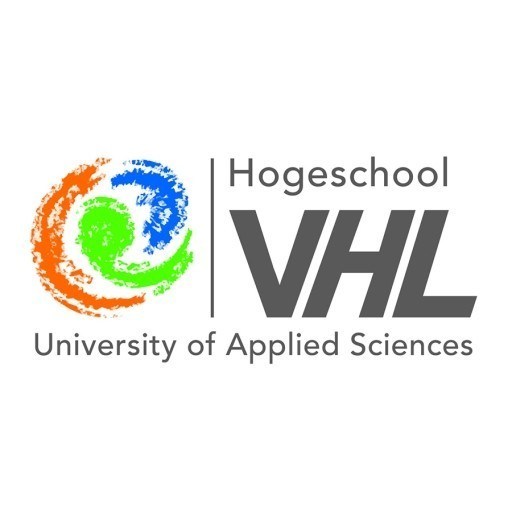Photos of university / #hebrewuniversity
Bachelor of Science in Agriculture — Plant Sciences at The Hebrew University of Jerusalem offers students a comprehensive education in the fundamental and applied sciences related to plant biology, development, and production. This program aims to equip students with the knowledge and skills necessary to address global challenges in agriculture, food security, and sustainable development. Throughout their studies, students explore various aspects of plant physiology, genetics, biochemistry, ecology, and pathology, gaining a deep understanding of how plants grow, develop, and respond to environmental factors. The curriculum includes courses in plant taxonomy, soil science, pest and disease management, biotechnology, and crop production systems, providing a well-rounded foundation for careers in agriculture, research, and industry. Students are encouraged to develop practical skills through laboratory work, field research, and internships, enabling them to apply theoretical concepts in real-world settings. The program fosters critical thinking, innovation, and a multidisciplinary approach, preparing graduates to contribute to advances in sustainable agriculture, crop improvement, and environmental conservation. With access to state-of-the-art laboratories and research facilities, students have opportunities to participate in pioneering research projects under the guidance of experienced faculty members. Graduates of this program are well-positioned to pursue careers in agricultural research institutions, government agencies, biotechnology companies, and international organizations dedicated to food security and sustainable development. Additionally, the program provides a solid foundation for students interested in continuing their education through master's and doctoral studies in plant sciences, agronomy, environmental sciences, and related fields. Emphasizing both scientific excellence and practical relevance, the Bachelor of Science in Agriculture — Plant Sciences at The Hebrew University of Jerusalem prepares students to become leaders in the advancement of agricultural science and sustainable practices worldwide.
Semester A
- Plant Biochemistry
- Biotechnology for Agricultural Crops
- Introduction to Molecular Biology
- Contemporary Approaches to Plant Physiology
- Experimental Design and Statistical Analyses + Practice
- Mineral Nutrition of Higher Plants
- Integrated Pest Management
- Scientific Writing and Presentation
Semester B
- Biological Control of Agricultural Pests
- Basic Irrigation Systems
- Post-Harvest Biology and Technology
- Weed Management
- Principles of Plant Breeding
- Current Greenhouse Crop Production
- Plant Propagation and Nursery Management
- Advances in Vegetable Production
- Seed Production
- DNA Markers for Genetic Analysis and Breeding
- Reproductive Biology of Fruit Crops
- Plant-Microbe Interactions
- Crop Physiology and Production
Summer Semester
- Research Exercise (Horticulture)
- Seminar (Horticulture)
- Research Exercise (Crops)
- Seminar (Crops)
We welcome applications from international students from all over the globe!
In order to apply to Graduate Studies at the Hebrew University you are required to meet the following prerequisites:
1. Bachelors degree from a recognized university
2. "B" average in undergraduate studies or its equivalent.
These are the minimum admission requirements. Many departments are selective and require a higher grade average.
3. Additional exams may be required, such as the GRE or GMAT.
4. Knowledge of English:
All candidates are required to meet English proficiency requirements as listed in the program website. TOEFL and IELTS are recognized.
The Department Admissions Committee takes the final decisions after review of the candidate’s academic achievements.
More information on specific admission requirements is available in the program website.
The financing of the Agriculture — Plant Sciences program at The Hebrew University of Jerusalem is primarily supported through a combination of tuition fees, government funding, research grants, and scholarships. Tuition fees are charged annually and vary depending on whether the student is a local Israeli resident or an international student. The university offers competitive tuition rates for local students, with additional financial aid options available to support those in need. International students may pay higher tuition fees, but there are various scholarship opportunities aimed at attracting talented students from around the world.
Research funding plays a significant role in supporting the program, particularly for graduate studies. The university's faculty members often secure research grants from national and international agencies, which in turn provide funding for students involved in specific research projects. This funding helps cover costs related to laboratories, fieldwork, and other research activities, thereby reducing the financial burden on students engaged in these projects.
Scholarships and bursaries are available through the university's scholarships office and are awarded based on academic merit, financial need, or specific criteria such as research excellence in plant sciences. Moreover, students frequently have access to teaching assistantships and research assistantships, which provide stipends in exchange for teaching or research responsibilities, further alleviating financial concerns.
External funding sources, including fellowships from governmental and international organizations focused on agricultural development and scientific research, also contribute to the financing of the program. These funds sometimes support international students and researchers, fostering global collaboration.
The university encourages students to seek external scholarships and funding opportunities to supplement their finances. Additionally, students can explore part-time work options available on or near campus, which are often compatible with their study schedules and offer additional income.
Overall, the financing structure of the Agriculture — Plant Sciences program at The Hebrew University of Jerusalem is designed to provide comprehensive financial support through a mix of institutional resources, external grants, scholarships, and part-time employment, ensuring that qualified students from diverse backgrounds can pursue their academic and research goals in plant sciences without undue financial hardship.
The Agriculture — Plant Sciences program at The Hebrew University of Jerusalem offers students a comprehensive education in the field of plant sciences, focusing on the biological, ecological, and agricultural aspects of plant cultivation and management. The curriculum is designed to equip students with both theoretical knowledge and practical skills necessary for addressing modern challenges in agriculture, such as sustainable farming practices, crop improvement, pest management, and environmental conservation.
Throughout the program, students study various topics including plant physiology, genetics, biochemistry, soil science, crop production techniques, and integrated pest management. The program emphasizes research and innovation, encouraging students to participate in scientific investigations that can lead to advancements in crop yield, disease resistance, and sustainable agricultural practices. Students have opportunities for hands-on experience through laboratory work, field studies, and internships, often collaborating with agricultural research centers and farms associated with the university.
The Faculty of Agriculture, Food and Environment at The Hebrew University supports the program with state-of-the-art laboratories, research facilities, and extension services. Students are also encouraged to engage with ongoing projects related to climate change impacts on agriculture, organic farming, and the development of new crop varieties. The program aims to prepare graduates for careers in agricultural research, education, farm management, consultancy, and policy-making related to sustainable agriculture and food security.
Graduates of the Agriculture — Plant Sciences program are well-positioned to contribute to advancements in agricultural productivity and sustainability, both within Israel and internationally. The program also fosters an understanding of the socio-economic and environmental implications of modern farming, preparing students for leadership roles in agricultural development initiatives. With an interdisciplinary approach, students are encouraged to think critically about the complex interactions between plants, pests, soil, climate, and human activity.
The curriculum is regularly updated to incorporate the latest scientific developments and technological innovations in plant sciences. Graduates earn a bachelor's degree in Agriculture with specialization in Plant Sciences, which offers a solid foundation for further academic pursuits such as master's and doctoral studies. The Hebrew University’s strong ties with the agricultural industry and research institutions facilitate valuable networking and employment opportunities for graduates. Overall, the program aims to cultivate skilled professionals dedicated to improving agricultural productivity and sustainability through scientific research and innovative practices, ultimately contributing to global food security and environmental health.










